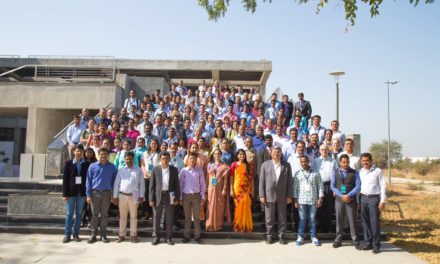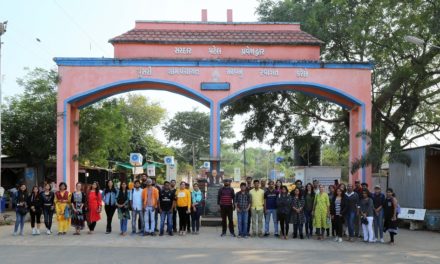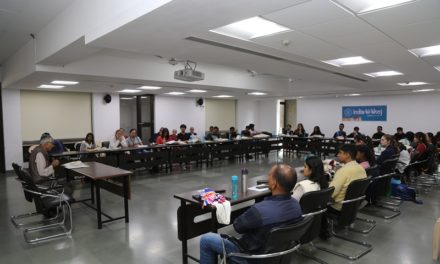The Humanities and Social Sciences (HSS) discipline at the institute conducted a one-day workshop on Sexual Cultures: Youth, Body & the Market on May 11 in collaboration with the Population Foundation of India, New Delhi. With topics ranging from masculinity to gender equity and dating cultures to aesthetic surgeries, the workshop broadly aimed at addressing how do we make sense of these paradoxical times of sexual liberalism and traditional gender mindsets.
Dr Tannistha Samanta, convener of the workshop, explained why the intellectual integration of sexuality studies with youth cultures is critical and timely. India is currently witnessing an increase in sexual assertion and celebration of female desire, as evidenced through popular audio-visual media, the #MeToo movement, LGBT activism, discussions around menstrual hygiene and greater visibility of women in urban spaces. But, with this sexual liberalism, there is a growing discontent among certain groups whose traditional gender privilege is starting to erode, for example, the resurgence of khap panchayats and a disturbing increase in the number of rapes in India.
By bringing together experts from both academia and international think tanks, the workshop attempted to sharpen the dialogue between the academia and policy around the questions of youth and their intimate practices. The workshop included speakers from the Population Council, New Delhi (Dr K G Santhya), International Centre for Research on Women, New Delhi (Ms Sharmishtha Nanda), FLAME University, Pune (Dr Juhi Siddharth) and School of Education, Ambedkar University (Dr Anandini Dar).
The first panel debated on Youth, Sexuality & Choice and the second panel put forth their points on Negotiating The Norm: Men, Masculinities And Designer Bodies. Dr Anandini Dar; opening talk set the stage for discussions about the social anxieties that exist in Indian society about young people and their sexual cultures. She emphasised the need in our current environment to equip the young and the most marginalised boys and girls to understand issues around consent and power in relation to their sexual behaviours.
Drawing from her ongoing qualitative research on dating cultures in Indian cities, Dr Juhi Siddharth focused on the changing values and norms surrounding dating and relationships among upper-middle-class young women.
Both Ms Sharmistha Nanda and Dr K G Santhya focused on programme interventions following a “gender transformative approach” on adolescents and young adults that address behavioural change around questions of choice. They talked about field-based research on improving knowledge and skills of young boys and girls to transition into healthy, safe and productive
youth.
In the last session, Dr Tannistha Samanta discussed how a growing aesthetic (cosmetic) industry focuses on body-modification procedures (hymenoplasty, vaginal rejuvenation) which embodies neo-liberal ideas of self-regulation and self-discipline. In the process, this talk raised questions on how are we to understand these shifts in a regime where technology, market, and social norms are producing new forms of inequities in gender and health.
A total of 36 participants from IITGN, Pandit Deendayal Petroleum University, Central University of Gujarat, Gujarat Forensic Sciences University, Indian Institute of Public Health Gandhinagar, Sambalpur University (Odisha), Institute of Economic Growth (New Delhi) and National Institution of Advanced Study (Bengaluru) attended the workshop.









